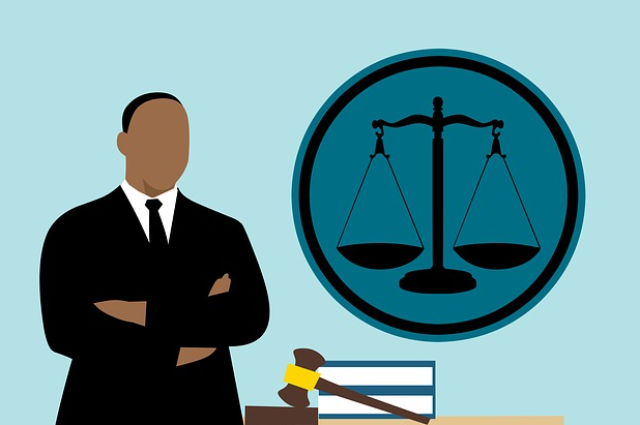
An independent, unbiased and insightful judiciary is one of the basic pillars of the platform on which any democracy can flourish. Conflicts, arguments, violence, fights, injuries, riots, marriages and divorces, hate speech, social injustice and discrimination have been part of every human civilizations across the planet from time immemorial. The steady march of human society from vast empires and monarchies under the successive rules of various royal dynasties towards modern democracy has been an intriguing story in itself; the factor that strengthened and established democratic practices has been a free and independent judiciary. From the times of French, Russian, Chinese, and Industrial Revolutions to the footfalls of the Islamic Revolution; one of the biggest public support behind them was a cry for natural justice from the ordinary citizens. Without this demand for eternal and unbiased justice for the ordinary people; no socio-cultural revolutions and/or establishment of a modern nation-state would have ever been possible.

India, an ancient civilization with rich ethnic and socio-cultural diversity, inhabited by billions of people today is in need of an uniform, judicial system that caters to both the rich and poor alike. Else the very democratic framework of the nation and our constitution will be questioned in due time. Justice for all should really mean equal justice for every member of our society.
Photo credit: Saikat Kumar Basu
Any empire, monarchy, kingdom, country, nation, state, or dictatorial regime that underestimated the cry for proper law and justice from the ordinary citizens have always perished historically. The regimes which ignored the need for establishing a proper justice system for all members of the society have suffered drastic consequences. Thus it is important for all to understand and appreciate that law and justice treating everyone equally and in an unbiased manner is an essential adjunct of our modern human societies. Even when humans were hunter-gatherers in our prehistoric days or even among remote and isolated Aboriginal communities we will find that they are governed by a set of rules and a justice system of some kind to run these societies. A society in the true sense of the term is thus guided by laws regulating and restricting our unacceptable behaviours and attitude with a sense of solidarity in the form of equal justice for all.
Judiciary and the Indian state during the pre-independence era
India, an ancient civilization and a vastly populated large country have been ruled by various empires, rulers, administrators over historic periods. The ancient scriptures, old records, and documents from the times of pre-Vedic and Vedic ages to medieval times have clearly demonstrated the rule of law in the country. However, whether the judiciary was independent and equal for all is a matter of serious in-depth research. Nonetheless, we could confidently suggest that historically India has been governed under different laws by various regimes; and a justice system has been historically prevalent in the subcontinent. Indians of various ethnic backgrounds, religions, castes, and creeds have always tasted a judiciary system prevalent in the country.
The Colonial Era established modern European laws and values on the Indian subcontinent under the long dark British rule till her independence in 1947. During the British Raj, many of the rules and legislations were racially motivated and based on hatred towards various Indian communities with a colonial mindset of ruling and exploiting both the people and the country for their personal gains and benefits. Although the British administration spoke and claimed highly of their unique justice system; it was nothing more than a tool of exploiting the natural, economic, and intellectual resources of India to fuel the economic growth of Britain. Many historic court cases during the British era have been simply a mockery of the justice system; based on current international guidelines can be easily called a crime against humanity with a highly revengeful and inhuman system of gross social injustice inflicted on Indians during the era. Several such kangaroo courts under the so-called just British administration simply wanted to remove people they considered to be long-term security and political threats to the British empire. Inhuman, brutal torture of Indian martyrs under the colonial British administration; and their unlawful punishment, confinement, exile, and hangings were nothing more than an attempt to silence ordinary citizens from their rights of having an independent India.
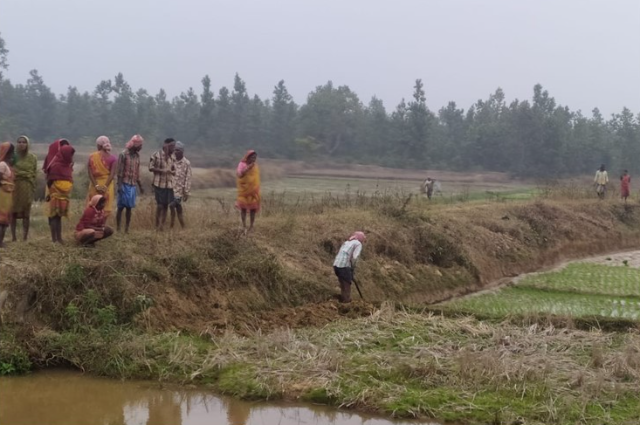
It is the responsibility of a modern democratic nation-state to make sure that the judicial system is uniformly established across every strata of the society; particularly for the poor, underprivileged, and minorities for democracy to take deeper roots in our society.
Photo credit: Saikat Kumar Basu
Following independence in 1947 and adopting a formal constitution in 1950, India set foot into an era of modern democracy and soon evolved into a republic. The nation now achieved its own Criminal Proceedings as well as Civil and Company laws to guide the nation and its people towards their March in establishing a progressive democracy. Unfortunately, many of the modern Indian laws and legislatures have their deep roots in the Colonial Period; and as such still applicable in Indian courts with little or no relevance to modern Indian society and people’s aspirations.
Judiciary and Indian state in the post-independent era
Seven decades post-independence it is now important to introspect the Indian judiciary as to where it stands and how it is serving its people. There is no doubt that successive Central and State governments of India since independence must be appreciated for establishing and extending the network of the Indian judiciary. Several new lower courts, high courts, circuit benches, civil courts, criminal courts, family courts, juvenile justice boards, green courts, industrial tribunals, CBI courts, human rights commissions, legal aid cells, etc have been successfully established across the country. But the population of the nation has also grown substantially during this same period; the new avenues of justice have been failing to keep up in catering their services to these growing populations simply in terms of numbers. Thus just like we need more police force for the proper administration of a densely populated country like India; similarly, we need more courts, judges, and other avenues of justice for the expanding populations.
One of the biggest problems holding back the Indian judiciary has been the acute shortage of qualified judges from the lower courts to the Supreme Court of India. As a consequence, litigations are piling up in massive numbers in each and every courthouse of the nation with people seeking justice suffering from depression and frustrations. We all agree that justice delayed is justice denied. However, the ground truths in India are absolutely opposite to our contrary beliefs. Court cases and proceedings running over 4-5 decades over several generations of the family and several judges down the time frame are simply a mockery of justice! The number of people held in Indian jails awaiting their first hearing date is staggering and a matter to be ashamed of as a citizen of the great country. Many have spent several decades in jail before being actually sentenced, and still, other unfortunates don’t even know when they will appear in court? What is more shameful is the fact that a significant number of people seeking justice or under trial have passed away before a final verdict was ever reached or the case was dismissed.
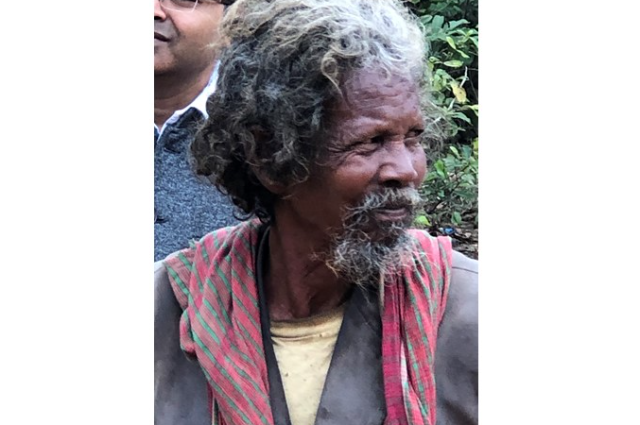
Not being able to deliver justice at the lowest levels of society has been a perennial, recurrent problem integrated with the Indian judiciary since independence due to a number of factors.
Photo credit: Saikat Kumar Basu
The digitization and documentation system in Indian courts has only been reformed quite recently. It is a matter of great concern that old rulings, judgments, case files, or police diaries have either vanished or been damaged due to improper, inadequate, and primitive storage facilities. It is a monumental task to locate any old documents or files that are not stored on online databases. No past references other than a couple of years old could be detected or produced. Even under stringent court orders, many valuable judicial documents have been damaged both intentionally and unintentionally post-independence. The acute lack of judges, sub judges, trained judiciary staff members, and officials have made the situation more critical than one could imagine in their distant dreams. The whole Indian judiciary is suppressed under the pressure of overload, lack of credibility and accountability as well as procrastination, failure in delivering justice, and primitive management of valuable legal documents. There is no shortage of supply lines of lawyers churned by the Ai Dian education system. But how many are properly trained and educated with little or no quality control system available is a million-dollar question!
Is Justice a distant dream for India as a modern nation and a republic in the era of Post Truth
By introspection of pre and post-independent India, we see that as a nation and a republic our advancement towards establishing a modern judiciary of the world’s largest democracy has been quite insignificant. Only very little has been achieved and colossal work lies in front of us. Due to the lack of modern judiciary infrastructure at the smallest unit of the Indian union, the villages; the way the Panchayati judiciary system works is horrifying. There is no need to illustrate and elaborate on the judicial practices of various Khap Panchayats, which are alarming and dehumanizing and often have committed and/or facilitated grave crimes against humanity through honour killings. At the lower court levels, procrastination, bribery, corruption, and nepotism along with undesirable political interference have only added extra loads on the already overburdened high court benches clogging the entire system.
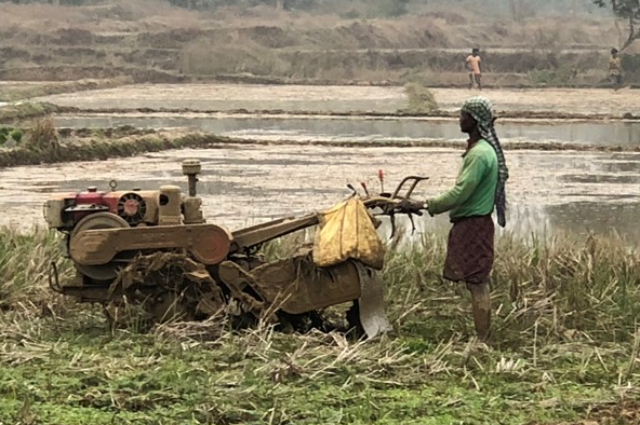
Can the poorest of the poor either afford or access justice in India under the current circumstances?
Photo credit: Saikat Kumar Basu
The salary and perks provided to the top judiciary bosses across the nation are highly appreciable on the respective of the average income of an Indian citizen. But the services provided are now highly questionable. Expensive medical bills, foreign trips, transportation, and modernization of offices have accounted for money provided in the form of government funds in several hundred chores. But the important question to ask is what is an average Indian citizen receiving from the judiciary, is just another ‘date’ throughout his or her lifetime and even beyond their demises. Cases hanging on the empty corridors of the Indian courts are crying aloud for the much-needed justice, but there is no response either from the judiciary or from the courts. The judicial cost post-independence has been rising steadily beyond the ability of the common citizen to even afford any justice through the court. Middle-income families entangled in court cases are suffocating and forget about the dark truths faced by the lower-income members of Indian society. The fees of lawyers representing their clients' high courts and supreme courts per day is more than the entire income of an individual during his or her lifetime. By the time the judicial verdict is made available, few generations may have simply perished. Is there any value in this late judgment?
Difficult questions for the Indian judiciary
The situation has turned worse in forcing us to ask now the pertinent question- is the judiciary catering only to the rich, ultra-rich, social, and political elites of India? Where can the average, ordinary Indian citizen go to seek justice? The way it looks is that the courts will only listen to the plights of the Bollywood giants like ‘Khans’ and ‘Kapurs’ or the Ambanis, Adanis, Birlas, and Tatas or politically influential upper-tier Indian society members only? Will the voice of the common person even be heard or responded to? Will the poorest of the poor get any justice or more reasonably afford any justice in India? Are we moving back to Middle Ages or to our Colonial Periods where justice could be just bought and sold and discrimination becomes rampant based on ethnicity, age, gender, language, caste, creed, religion, economic status, or socio-political influences?
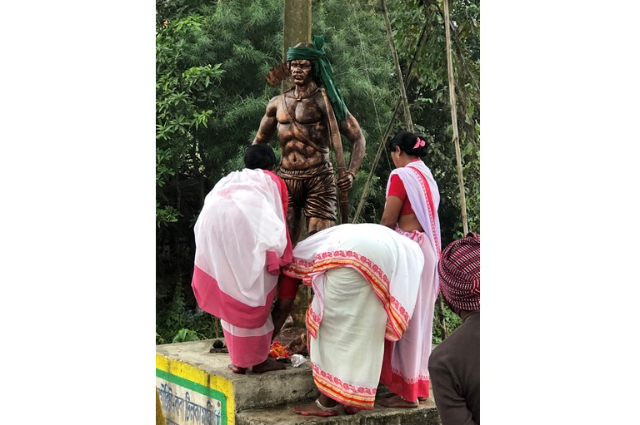
It is absolutely important for the nation to provide justice to all; irrespective of ethnicity, gender, caste, and creed to credibly establish democracy and justice for all.
Photo credit: Saikat Kumar Basu
Lack of reforms in the Indian judicial system has been plaguing the system for a very long time. The processing of justice and judgment, smooth running of the system, recording, and preservation of legal documents, appointments of judges, public prosecutors, attorneys, solicitors, advocates at various levels need sweeping reforms. No lawmakers such as the parliamentarians and legislators in the nation wish to work towards fixing these problems at the highest level and pass them as laws. As a consequence, there has been no proper parliamentary level investigation, evaluation, review, and discussion on Indian judicial reforms. The problems highlighted here are only the tip of the iceberg. The attempts in discussing the challenges of the Indian judiciary are monumental and will need several thick volumes to discuss each angle and parameters in-depth! Nonetheless to cut the long story short we can suggest that the Indian judicial system needs fixing to make it available, accessible and affordable to all.
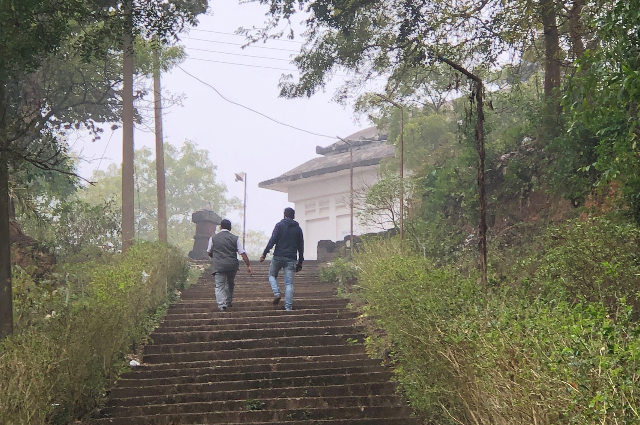
Unless a stringent and rigorous, reformed, and independent judicial system is established across the nation uniformly; we are only climbing the steps of an ivory tower in the air with no roots to connect it to the grounds of real democracy.
Photo credit: Saikat Kumar Basu
